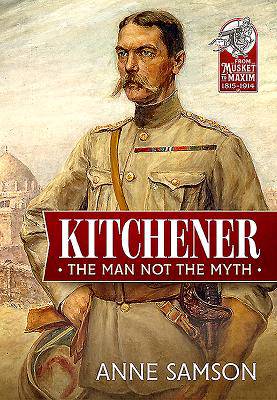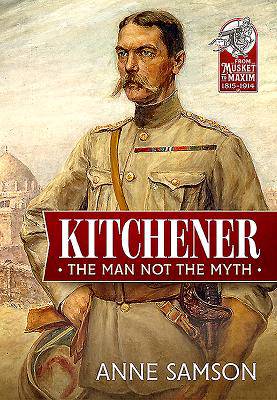
- Afhalen na 1 uur in een winkel met voorraad
- Gratis thuislevering in België vanaf € 30
- Ruim aanbod met 7 miljoen producten
- Afhalen na 1 uur in een winkel met voorraad
- Gratis thuislevering in België vanaf € 30
- Ruim aanbod met 7 miljoen producten
Zoeken
€ 41,95
+ 83 punten
Uitvoering
Omschrijving
In contrast to the existing biographies which treat Kitchener as British, the author of Kitchener: The Man Not the Myth, considers him an outsider within the British establishment. Of his 64 years, a mere 11, and those not consecutive, were spent in England. He learned from those around him, ways that were not always understood and appreciated by those educated in England.
Using the existing biographies on Kitchener as a starting point, this book looks beyond his military exploits to consider who Kitchener was, and how he came to be the person we think we know. Archival and autobiographical accounts of contemporaries who encountered and worked with Kitchener have been used to confirm and challenge accepted perceptions.
In doing so, consideration is given to his skills, interests, beliefs, and relationships. Kitchener: The Man Not the Myth charts his development from birth in Ireland to education in Europe, training at Woolwich and what he learnt from his military experiences. It considers his relationships with Free Masonry, journalists, politicians, subordinates and women. His sense of history, cultural awareness, and foresight made him a man ahead of his time. For all his faults, Kitchener was loyal, dependable, sensitive, and the best man for the job in 1914.
Using the existing biographies on Kitchener as a starting point, this book looks beyond his military exploits to consider who Kitchener was, and how he came to be the person we think we know. Archival and autobiographical accounts of contemporaries who encountered and worked with Kitchener have been used to confirm and challenge accepted perceptions.
In doing so, consideration is given to his skills, interests, beliefs, and relationships. Kitchener: The Man Not the Myth charts his development from birth in Ireland to education in Europe, training at Woolwich and what he learnt from his military experiences. It considers his relationships with Free Masonry, journalists, politicians, subordinates and women. His sense of history, cultural awareness, and foresight made him a man ahead of his time. For all his faults, Kitchener was loyal, dependable, sensitive, and the best man for the job in 1914.
Specificaties
Betrokkenen
- Auteur(s):
- Uitgeverij:
Inhoud
- Aantal bladzijden:
- 274
- Taal:
- Engels
- Reeks:
Eigenschappen
- Productcode (EAN):
- 9781912866458
- Verschijningsdatum:
- 10/02/2020
- Uitvoering:
- Hardcover
- Formaat:
- Genaaid
- Afmetingen:
- 160 mm x 236 mm
- Gewicht:
- 680 g

Alleen bij Standaard Boekhandel
+ 83 punten op je klantenkaart van Standaard Boekhandel
Beoordelingen
We publiceren alleen reviews die voldoen aan de voorwaarden voor reviews. Bekijk onze voorwaarden voor reviews.











